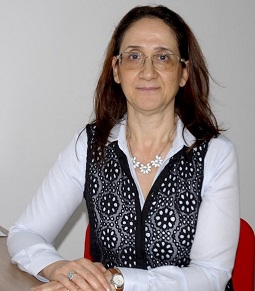
Prof. Dr. H. Seda VATANSEVER
Group Leader
Researchers: Assoc. Prof. Dr. Emine ERDAĞ HASKOLOĞLU, Assit. Prof. Ayşe SEYER, Assit. Prof. Burak DURMAZ, Assit. Prof. Faika BAŞOĞLU
The Drug Design and Development Research Group was established on May 30, 2025, within the Near East University, DESAM Institute. The research team consists of Prof. Dr. H. Seda Vatansever (Group Leader), Assoc. Prof. Dr. Emine Erdağ Haskoloğlu, Asst. Prof. Dr. Ayşe Seyer, Asst. Prof. Dr. Faika Başoğlu, and Asst. Prof. Dr. Burak Durmaz. The group brings together the fields of basic medical sciences and pharmaceutical chemistry, with the mission of contributing to all stages of in vitro and in vivo drug design and development processes.
The group aims to design new drugs, discover molecules that could serve as potential drug candidates or compounds derived from natural sources, test drug candidates obtained through in vitro and in vivo studies, and apply computer-aided drug design techniques and modeling. Its main goal is to contribute to the pharmaceutical industry and promote the development of national and domestic drugs through collaborations.
In particular, the group aims to reveal the therapeutic potential of products through drug design and development studies, to conduct research on drug and disease targets as well as personalized treatment processes, and to provide education in these fields.